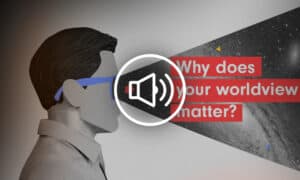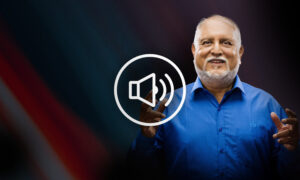“Stop Being Shocked” is a must-read article by Bari Weiss, recently published at Tablet. Weiss is a former opinion editor and writer at the New York Times. She was forced to resign from her position earlier this year because she believes in the now outdated idea that newspapers need to inform their readers by publishing different perspectives on an issue. This formerly mainstream idea is no longer accepted at the New York Times, which now believes in putting forward only one perspective: that which aligns with the dominant ideology.
In her article, Weiss issues a strong warning against ideological social justice. She writes, not as a conservative Trump-supporter, but as what I would call an old-school “classical liberal.” She says, “I share with the majority of American Jews’ disgust toward Trump and Trumpism, which has normalized bigotry and cruelty in ways that have crippled American society.”
Weiss writes as a Jew to other Jews, but much of what she says is relevant to Christians. She offers helpful clarity on what is under threat of being lost, and on the new ideology that is threatening it. Ideological social justice, she explains, has “attained cultural dominance, capturing America’s elites and our most powerful institutions.” Her purpose in writing the article is to “ring the alarm.”
Weiss writes: “To understand the enormity of the change we are now living through, take a moment to understand America as the overwhelming majority of [us] believed it was—and perhaps as we always assumed it would be.” Ours was a culture built on the following widely-accepted bedrock beliefs:
- The belief that “everyone is equal because everyone is created in the image of God.”
- “The belief in the sacredness of the individual over the group or the tribe.”
- “The belief that the rule of law—and equality under that law—is the foundation of a free society.”
- “The belief that due process and the presumption of innocence are good and that mob violence is bad.”
- “The belief that pluralism is a source of our strength; that tolerance is a reason for pride; and that liberty of thought, faith, and speech are the bedrocks of democracy.”
- A belief that “the most important things … in life were located outside of the realm of politics: friendships, art, music, family, love.”
- A conviction that the “tools of reason and the scientific method…were the best tools for human progress that have ever been devised.”
- The belief that “racism was evil because it…judged people not based on the content of their character, but on the color of their skin.”
- The belief that America’s “founding documents were not evil to the core but ‘magnificent,’ as Martin Luther King Jr. put it, because they were ‘a promissory note to which every American was to fall heir.’ In other words: The founders themselves planted the seeds of slavery’s destruction. And our second founding fathers—abolitionists like Frederick Douglass—made it so. America would never be perfect, but we could always strive toward building a more perfect union.”
This helpful list is the substance of classical liberalism. The reason I’m a conservative is because I want to preserve these bedrock ideas and beliefs and pass on to my children a nation where these fundamental beliefs are intact and widely upheld. They are good because they fundamentally align with the truth, the biblical worldview.
But like Weiss, I see these all under threat from an ideology that has been percolating in our universities since the 1950s and now is spilling out into the broader culture at breakneck speed. In my new book, Why Social Justice is not Biblical Justice, I call this worldview “ideological social justice.” According to Weiss: American liberalism is under siege. There is a new ideology vying to replace it.
No one has yet decided on the name for the force that has come to unseat liberalism. Some say it’s “Social Justice.” The author Rod Dreher has called it “therapeutic totalitarianism.” The writer Wesley Yang refers to it as “the successor ideology”—as in, the successor to liberalism.
At some point, it will have a formal name, one that properly describes its mixture of postmodernism, postcolonialism, identity politics, neo-Marxism, critical race theory, intersectionality, and the therapeutic mentality.
Shes goes on to explain the broad outlines of ideological social justice this way:
The new creed’s premise goes something like this: We are in a war in which the forces of justice and progress are arrayed against the forces of backwardness and oppression. And in a war, the normal rules of the game—due process; political compromise; the presumption of innocence; free speech; even reason itself—must be suspended. Indeed, those rules themselves were corrupt to begin with—designed, as they were, by dead white males in order to uphold their own power.
Weiss then goes on to say that “critical race theory” is the “beating heart” of the new ideology. She quotes Angela Harris, author of Critical Race Theory: An Introduction: “critical race theory questions the very foundations of the liberal order, including equality theory, legal reasoning, Enlightenment rationalism, and neutral principles of constitutional law.” Weiss explains what all this means in practice:
Critical race theory says there is no such thing as neutrality, not even in the law, which is why the very notion of colorblindness—the Kingian dream of judging people not based on the color of their skin but by the content of their character—must itself be deemed racist. Racism is no longer about individual discrimination. It is about systems that allow for disparate outcomes among racial groups. If everyone doesn’t finish the race at the same time, then the course must have been flawed and should be dismantled.
Thus the efforts to do away with the SAT, or the admissions test for elite public schools like Stuyvesant and Lowell—for decades, the engines of American meritocracy that allowed children of poor and working-class families to advance on their merits, regardless of race. Or the argument made recently by The New York Times’ classical music critic to do away with blind auditions for orchestras.
In fact, any feature of human existence that creates disparity of outcomes must be eradicated: The nuclear family, politeness, even rationality itself can be defined as inherently racist or evidence of white supremacy.
Weiss goes on to say that “the most powerful exponent of this worldview is Ibram X. Kendi.”
His book “How to Be an Antiracist” is on the top of every bestseller list; his photograph graces GQ; he is on Time’s most influential people of the year; and his outfit at Boston University was recently awarded $10 million from Twitter CEO Jack Dorsey.
According to Kendi, we are all either racist or anti-racist. To be a Good Person and not a Bad Person, you must be an “anti-racist.” There is no neutrality, no such thing as “not racist.” …
Martin Luther King Jr.’s most famous speech would not meet Kendi’s definition of anti-racism, nor would the one Barack Obama made about there being too many fatherless Black families. Indeed, nearly everything that Americans have been taught about how to be anti-racist for the past several decades is, according to Kendi’s explicit definition, racist.
It’s a rhetorically brilliant strategy. Racism is the gravest sin in American life. Who would ever want to be anything other than an anti-racist? And so under the guise of a righteous effort to achieve overdue justice and equality of opportunity for Black Americans, Kendi and his ideological allies are presenting Americans with a zero-sum choice: conform to their worldview or be indistinguishable from the likes of [open white supremacist] Richard Spencer.
The speed and force with which this ideology has taken over the commanding heights of Western culture has been stunning. Weiss quotes the philosopher Peter Boghossian’s take on this:
“This ideology is the dominant moral orthodoxy in our universities, and has seeped out and spread to every facet of American life— publishing houses, tech, arts, theater, newspapers, media,” and, increasingly, corporations. It has not grabbed power by dictates from above, but by seizing the means of sense-making from below.
Over the past few decades and with increasing velocity over the last several years, a determined young cohort has captured nearly all of the institutions that produce American cultural and intellectual life. Rather than the institutions shaping them, they have reshaped the institutions. You don’t need the majority inside an institution to espouse these views. You only need them to remain silent, cowed by a fearless and zealous minority who can smear them as racists if they dare disagree.
Weiss knows this from painful personal experiences. Over the past five years, the New York Times was utterly reshaped to conform to this ideology. She refused to go along to get along, and was forced out.
Near the end of the essay, she ponders why such a serious civilizational threat is still not taken seriously by many in positions of leadership.
If you’re … wondering why this [ideology] hasn’t been explained to you before, the answer is because, yet again, we find ourselves in another moment in Jewish history at a time of great need and urgency with communal leadership who, with rare exception, will not address the danger.
I think we can say the same thing about many of our most prominent evangelical leaders. Not only are they not addressing the danger, many have absorbed many of the presuppositions of ideological social justice and are championing them to others in the church with a thin Christian veneer.
She ends on this sobering note, reminding us that American liberalism is rooted most deeply, not in the ideas of the 17th century Enlightenment, but in Hebrew, that is, biblical ideas:
The idea that we should judge each person not by their station or their family lineage but by their deeds; that human beings have agency—these are revolutionary ideas that are, at root, Hebrew ones. We should never be shocked that any ideology that makes war on these true and eternal values will inevitably make war on us.
The “us” she is referring to are Jews, but in reality, it includes those of us who uphold the authority of the Bible.
These enemies of Western liberalism–the advocates of ideological social justice–are not our enemies, however. For, as Paul reminds us, “our struggle is not against flesh and blood, but against the rulers, against the authorities, against the powers of this dark world and against the spiritual forces of evil in the heavenly realms” (Ephesians 6:12).
Even as we counter cultural lies with truth, we are called to show love to those who make war on us (Matthew 5:44), because God loves them, and desires all men to be saved (1 Timothy 2:4). This is our calling: “Do not be overcome by evil, but overcome evil with good” (Romans 12:21).
We are heading into turbulent waters, but God has called us to this hour, and will supply us with all we need to stand, and to honor Him as we remain faithful to Him.




